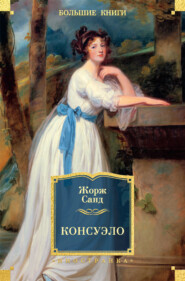По всем вопросам обращайтесь на: info@litportal.ru
(©) 2003-2024.
✖
The George Sand-Gustave Flaubert Letters
Настройки чтения
Размер шрифта
Высота строк
Поля
CLII. TO GUSTAVE FLAUBERT
Paris, 2d March, 1870
Poor dear friend, your troubles distress me, you have too many blows in quick succession, and I am going away Saturday morning leaving you in the midst of all these sorrows! Do you want to come to Nohant with me, for a change of air, even if only for two or three days? I have a compartment, we should be alone and my carriage is waiting for me at Chateauroux. You could be sad without constraint at our house, we also have mourning in the family. A change of lodging, of faces, of habits, sometimes does physical good. One does not forget one's sorrow, but one forces one's body to endure it.
I embrace you with all my soul. A word and I expect you. Wednesday evening.
CLIII. TO GUSTAVE FLAUBERT
Nohant, 11 March, 1870
How are you, my poor child? I am glad to be here in the midst of my darling family, but I am unhappy all the same at having left you melancholy, ill and upset. Send me news, a word at least, and be assured that we all are unhappy over your troubles and sufferings.
G. Sand
CLIV. TO GEORGE SAND 17 March, 1870
Dear master,
I received a telegram yesterday evening from Madame Cornu containing these words: "Come to me, urgent business." I therefore hurried to her today, and here is the story.
The Empress maintains that you made some very unkind allusions to her in the last number of the Revue! "What about me, whom all the world is attacking now! I should not have believed that! and I wanted to have her nominated for the Academy! But what have I done to her? etc., etc." In short, she is distressed, and the Emperor too! He is not indignant but prostrated (sic). [Footnote: Malgre tout, Calmann-Levy, 1870.]
Madame Cornu explained to her that she was mistaken and that you had not intended to make any allusion to her.
Hereupon a theory of the manner in which novels are written.
– Oh well, then, let her write in the papers that she did not intend to wound me.
– But she will not do that, I answered.
– Write to her to tell you so.
– I will not allow myself to take that step.
– But I would like to know the truth, however! Do you know someone who…then Madame Cornu mentioned me.
– Oh, don't say that I spoke to you of it!
Such is the dialogue that Madame Cornu reported to me.
She wants you to write me a letter in which you tell me that the
Empress was not used by you as a model. I shall send that letter to
Madame Cornu who will have it given to the Empress.
I think that story stupid and those people are very sensitive! Much worse things than that are told to us.
Now dear master of the good God, you must do exactly what you please.
The Empress has always been very kind to me and I should not be sorry to do her a favor. I have read the famous passage. I see nothing in it to hurt her. But women's brains are so queer!
I am very tired in mine (my brain) or rather it is very low for the moment! However hard I work, it doesn't go! Everything irritates me and hurts me; and since I restrain myself before people, I give way from time to time to floods of tears when it seems to me as if I should burst. At last I am experiencing an entirely new sensation: the approach of old age. The shadow invades me, as Victor Hugo would say.
Madame Cornu has spoken to me enthusiastically of a letter you wrote her on a method of teaching.
CLV. TO GUSTAVE FLAUBERT, at Croissset
Nohant, 17 March, 1870
I won't have it, you are not getting old. Not in the crabbed and MISANTHROPIC sense. On the contrary, when one is good, one becomes better, and, as you are already better than most others, you ought to become exquisite.
You are boasting, moreover, when you undertake to be angry against everyone and everything. You could not. You are weak before sorrow, like all affectionate people. The strong are those who do not love. You will never be strong, and that is so much the better. You must not live alone any more; when strength returns you must really live and not shut it up for yourself alone.
For my part, I am hoping that you will be reborn with the springtime. Today we have rain which relaxes, tomorrow we shall have the animating sun. We are all just getting over illnesses, our children had very bad colds, Maurice quite upset by lameness with a cold, I taken again by chills and anemia: I am very patient and I prevent the others as much as I can from being impatient, there is everything in that; impatience with evil always doubles the evil. When shall we be WISE as the ancients understood it? That, in substance, meant being PATIENT, nothing else. Come, dear troubadour, you must be a little patient, to begin with, and then you can get accustomed to it; if we do not work on ourselves, how can we hope to be always in shape to work on others?
Well, in the midst of all that, don't forget that we love you and that the hurt you give yourself hurts us too.
I shall go to see you and to shake you as soon as I have regained my feet and my will, which are both backward; I am waiting, I know that they will return.
Affectionate greetings from all our invalids. Punch has lost only his fiddle and he is still smiling and well gilded. Lolo's baby has had misfortunes, but its clothes dress other dolls. As for me, I can flap only one wing, but I kiss you and I love you.
G. Sand
CLVI. TO GUSTAVE FLAUBERT, in Paris
Nohant, 19 March, 1870
I know, my friend, that you are very devoted to her. I know that she [Footnote: Letter written about the rumour current, that George Sand had meant to depict the Empress in one of the chief characters of her novel, Malgre tout; the letter was sent by Flaubert to Madame Cornu, god-child of Queen Hortense, and foster-sister of Napoleon III.] is very kind to unfortunates who have been recommended to her; that is all that I know of her private life. I have never had any revelation nor document about her, NOT A WORD, NOT A DEED, which would authorize me to depict her. So I have drawn only a figure of fancy, I swear it, and those who pretended to recognize her in a satire would be, in any case, bad servants and bad friends.
But I don't write satires: I am ignorant even of the meaning of the word. I don't write PORTRAITS either; it is not my style. I invent. The public, who does not know in what invention consists, thinks it sees everywhere models. It is mistaken and it degrades art.
This is my SINCERE answer, I have only enough time to mail it.
G. Sand
CLVII. To MADAME HORTENSE CORNU
Your devotion was alarmed wrongly, dear madame, I was sure of it!
Here is the answer that came to me by return mail.
People in society, I reiterate, see allusions where there are none. When I did Madame Bovary I was asked many times: "Is it Madame X. whom you meant to depict?" and I received letters from perfectly unknown people, among others one from a gentleman in Rheims who congratulated me on HAVING AVENGED HIM! (against a faithless one).
Every pharmacist in Seine-Inferieure recognizing himself in Homais, wanted to come to my house to box my ears. But the best (I discovered it five years later) is that there was then in Africa the wife of an army doctor named Madame Bovaries who was like Madame Bovary, a name I had invented by altering that of Bouvaret.
The first sentence of our friend Maury in talking to me about l'Education sentimentale was this: "Did you know X, an Italian, a professor of mathematics? Your Senecal is his physical and moral portrait! Everything is exact even to the cut of his hair!"

















